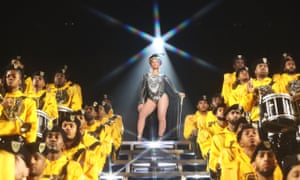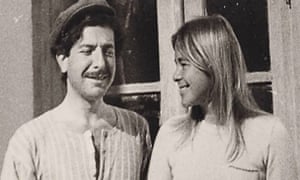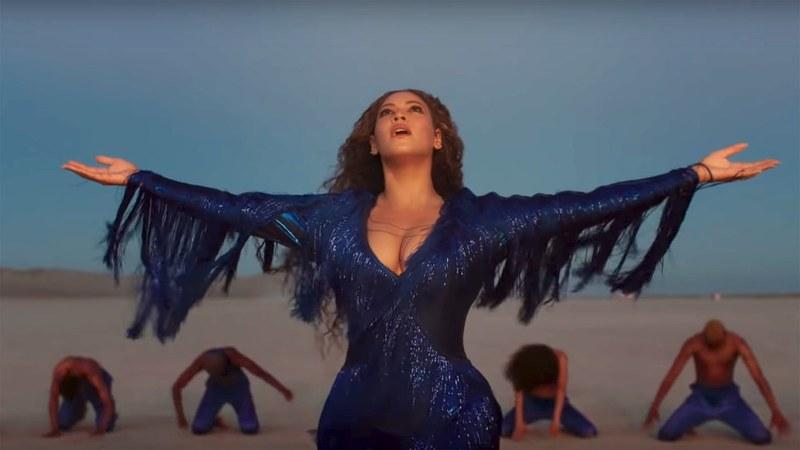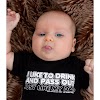beyonce real name |
- Dax Shepard Totally Embarrassed Kristen Bell In Front Of Beyonce & Jay-Z - iHeartRadio
- Report: Alicia Keys, husband look to transform Macedon property into music campus - 13WHAM-TV
- Sho Madjozi’s Mixed Up, Pan-African Rap - The New York Times
- Who Are the Characters in the New 'The Lion King'? - Showbiz Cheat Sheet
- Trump Backing Kid Rock Attacks Taylor Swift's Career, Politics With Twisted Oral Sex Remark - Jim Heath TV
- From Beyoncé to Bob Dylan, why music docs are all over our screens - The Guardian
- Beyoncé is facing accusations of ‘stealing’ visuals for her Lion King music videos – as a fan, I’m taking them seriously - The Independent
| Dax Shepard Totally Embarrassed Kristen Bell In Front Of Beyonce & Jay-Z - iHeartRadio Posted: 09 Aug 2019 02:01 PM PDT Dax Shepard couldn't play it cool when meeting his idol Jay-Z. While on First We Feast's famous hot wing-eating show "Hot Ones," Kristen Bell revealed how her husband embarrassed her when he met the hip-hop mogul for the first time at the Met Gala one year. First Kristen set the scene, detailing how excited she and Dax were when they found out they would be sitting next to Beyoncé and Jay at fashion's biggest night. "When we found this out we were, forget it, we were so excited," she recalled. "And I was like, 'Oh, this is going to be great, finally after tonight, we'll have them in our phones, and we'll be best friends.'" The Veronica Mars star then explained how she and Dax "maneuvered" the table so Dax would be sitting right next to Jay-Z. However, once the "Mood 4 Eva" rapper was seated, all of Dax's cool and chill went out the window. "Dax talked his ear off and I don't think Jay was that interested," Kristen said before adding that she was "proud" that "he went for broke" and spoke to the person he loves. "I think at one point [Dax] also hit him with a lyric," she continued. "I think he was like, 'Real recognize real' And I was like, 'Dax, Dax, don't.'" |
| Report: Alicia Keys, husband look to transform Macedon property into music campus - 13WHAM-TV Posted: 09 Aug 2019 04:18 AM PDT [unable to retrieve full-text content]Report: Alicia Keys, husband look to transform Macedon property into music campus 13WHAM-TV (WHAM) - Grammy winning singer Alicia Keys and her husband, producer Swizz Beatz, are planning to transform a large piece of property in Macedon into a ... |
| Sho Madjozi’s Mixed Up, Pan-African Rap - The New York Times Posted: 09 Aug 2019 07:04 AM PDT  BARCELONA, Spain — On a recent afternoon on a hotel rooftop, the rapper Sho Madjozi was twirling one of her candy-pink plaits and talking through her signature style. These bright extensions were inspired by the decorative "Fulani" cornrows she had seen girls wearing in Senegal, she said. Her take on them has since become so popular, she added, that in South Africa, where she's from, they're called Madjozi braids. "You can ask for them in a hair salon," Madjozi said, with casual self-assurance. "They'll know what you're talking about." Madjozi, 27, whose real name is Maya Wegerif, is one of South Africa's biggest breakthrough stars. She was in Barcelona in July to perform at Sónar, one of several dance music-focused European festivals she played in the past 12 months, along with CTM in Berlin and Unsound in Krakow, Poland. She performed at the Global Citizen Festival last year, sharing a bill with Beyoncé and Ed Sheeran, and won Best New International Act at the BET Awards in New York last month. On Aug. 17, she is to perform in Warm Up, the respected concert series at MoMA PS1 in Queens that spotlights rising international artists. Image  Madjozi is a new kind of global pop star, much like the Spanish flamenco-pop innovator Rosalía: She pays homage to her heritage while updating it for the moment, cutting across continents and genres. Born in a village in Limpopo Province, north of Johannesburg, Madjozi's formative years were mostly spent outside South Africa: Her Swedish father worked for an international development nonprofit, and his work took the family to Dar es Salaam, Tanzania. After high school, Madjozi attended college in Massachusetts. This globe-trotting youth exposed her to cultural influences from around Africa and the world. Yet it's the Tsonga heritage of her birthplace that she is best known for celebrating. The Tsonga are a distinct ethnic group with their own language and culture, and many Tsonga people in South Africa arrived as refugees from Mozambique in the 19th century, Madjozi said. They faced discrimination and xenophobia that still persists, she said. Being Tsonga "wasn't cool," Madjozi said, and she wanted to change that. One of her signature looks involves a "xibelani" skirt, which is worn by Tsonga women for dancing. (Madjozi pairs hers with Nike Air Max sneakers.) Her lyrics mix it up, too. She mostly raps in a combination of Xitsonga, the language of the Tsonga people, and English. Her bubblegum-bright party track "Huku" is in Swahili, a language Madjozi learned to speak fluently in Tanzania. These multilingual flows unfold over a style of music known as gqom, a shadowy strain of house that began bubbling out of townships in Durban, South Africa, in the early 2010s. To untutored ears, gqom can sound gritty, with its apocalyptic sirens and ribcage-rattling bass. In Europe and the United States, Madjozi said, the style is often "perceived as being alternative or experimental." But in South Africa, she added, "Gqom is the biggest sound. Gqom is the pop of South Africa." Recently, American hip-hop heavyweights seem to have recognized gqom's combination of rough-hewed authenticity and commercial potential. Kendrick Lamar's soundtrack for the superhero movie "Black Panther" features gqom beats, and Beyoncé's new "Lion King" album brings in South African gqom musicians on the track "My Power." Madjozi hasn't had her Hollywood moment yet, but her songs are among gqom's most accessible examples. On her debut album "Limpopo Champions League," released in December 2018, she put the genre's beats into a typical "verse, chorus, verse," pop song structure, she said. It may sound obvious at first, but Helen Herimbi, a music journalist based in Johannesburg, said that this approach was radical because "gqom typically features vocalists who use minimal lyrics or chants." Madjozi, she added, "ushered in an evolution of the sound, by including entire rap verses." Madjozi was a poet before she was a rapper: You can see one of her spoken-word pieces, "Why You Talk So White?," on YouTube. Recorded at a poetry slam while she was studying creative writing and African studies at Mount Holyoke College, "Why You Talk So White?" was an early indication of Madjozi's smart, incisive takes on the nuances of race. Madjozi said that being poet helped her "understand rhythm" and made her "very technical" about her lyrical flow. "You can like my flows without understanding what I'm saying," she added. Alex Okosi, the director of the TV channel that hosts the BET Awards, said that "language is becoming less and less relevant" in pop music. "Fans are choosing to enjoy the artistry, sound and creativity of music regardless of its origin," Mr. Okosi said. "Sho's ability to weave African storytelling into her music delivers songs that resonate." Madjozi said her early songs and poems were "about asserting my independence as a young black woman in South Africa, and being rebellious." "It was big for a woman to be talking about boys, about alcohol, about partying," she said, "because Tsonga culture tends to be a little bit conservative." Her focus has turned to pointing out South Africa's "glaring problems," she said, adding: "The inequality within that place is unignorable." Again, her image is an important part of that narrative. She said she wanted to appear fun, positive and empowering, presenting an image of what a young African woman might be like if she "didn't come from a place that had been subjected to colonialism and apartheid." Part of doing that is regularly wearing the traditional Tsonga garb, onstage and off, Madjozi said. "You'll wear your traditional attire at weddings," she explained. "There's even a day called 'heritage day' where people will wear their traditional attire to work. I just said, 'I want to wear it every day.' "My question was always: 'Who are we then the rest of the time if we're only ourselves on specific occasions?'" Most black South Africans, Madjozi said, "learn to put away your Africanness." Those who move to the city from a rural area often feel like they have "to take off" their ethnic identity, she said. "The lucky thing," she added, was that "I learned to never take it off." |
| Who Are the Characters in the New 'The Lion King'? - Showbiz Cheat Sheet Posted: 05 Aug 2019 06:21 AM PDT The king has returned. With Disney's The Lion King dominating box office sales, some fans are wondering what changes the company made to the original film. Who voices Simba in Disney's The Lion King? Who are the characters in the re-imagined version of the animated movie? Learn more about them here. The main hyenas in 'The Lion King' are Shenzi, Kamari, and AziziWe just can't wait to meet these new characters. After some speculation regarding racial prejudice with the hyenas in The Lion King, Disney removed and revamped characters like Shenzi, Banzai, and Ed. Don't worry, the hyenas are still around in this live-action adaptation, but their characterization is entirely different. Comedian Eric Andre voices Azizi, a hyena with a disregard for personal space. Actor Keegan-Michael Key voices Kamari, another main character out of the hyenas. Actress Florence Kasumba voices the leader of the hyenas, Shenzi. Her character even has beef with Nala, portrayed by singer Beyoncé Knowles-Carter.  Nala, voiced by Beyoncé is more of a lead character in the re-imagined 'The Lion King'Can you feel our love for Beyoncé tonight? The Grammy-award winning artist returns to the silver screen as Nala in The Lion King. Well, kind of. Beyoncé Knowles-Carter voices the character and even sings songs like "Can You Feel The Love Tonight" and "Sprit" on the original motion picture soundtrack. Previously, Beyoncé acted in movies like The Pink Panther, Dreamgirls, and Austin Powers in Goldmember. The voice of young Nala is portrayed by Shahadi Wright Joseph, one of the youngest actresses to play young Nala in Disney's The Lion King on Broadway. You might know her as the track star from Jordan Peele's movie Us, but she also starred in Hairspray Live as Little Inez. K. C. Undercover's JD McCrary portrays young Simba. Donald Glover, also known by his stage name, Childish Gambino, voices the lead role of adult Simba. Aside from The Lion King, Glover starred in Solo: A Star Wars Story, Atlanta, Spider-Man: Homecoming, and The Martian. Other characters, like Timon, Pumbaa, and Zazu appear in the live-action adaptation of 'The Lion King'It's not all about lions in this movie — other animals from the original return in their fury, photo-real version of the film. A few iconic characters include duo Timon and Pumbaa, who reappear as Simba's closest friends in this rebooted adaptation. Timon, the self-absorbed meerkat, initially voiced by Nathan Lane, is portrayed by comedian Billy Eichner. Pumbaa, the lovable warthog, initially voiced by Ernie Sabella, is portrayed by Seth Rogen. A few new animal friends join Timon and Pumbaa on their adventures, including Bush Baby, voiced by Chance The Rapper according to Refinery 29. Talk show host, John Oliver, voices one of the member's of the king's court, a bird named Zazu. James Earl Jones reprises his role as Mufasa, Simba's father. Additionally, John Kani voices the wise Rafiki. Disney's rebooted version of The Lion King is currently playing in theaters. The Lion King soundtrack is available for streaming on Spotify, Apple Music, and other music platforms. |
| Posted: 09 Aug 2019 03:48 PM PDT Kid Rock, who "starred" in his own sex tape in the late 90's, took a shot at Taylor Swift's jump into acting by claiming she's down to trade sex acts for movie roles.The staunch Trump supporter woke up this morning and, much like his favorite politician, decided to launch a Twitter attack. Kid Rock, real name Robert Ritchie, first accused Swift of being a Democrat solely to advance her aspiring movie career. Then the 48 year old rocker suggested the 29-year-old would perform a sexual act – namely oral sex – to get more starring roles:
It's presumed he was responding to headlines about Taylor's reasoning for not endorsing Hillary Clinton in 2016, because she said she felt her endorsement would've been a liability for Clinton because both she and the candidate were being called snakes and liars at the time. The morality shot at Swift is interesting coming from Rock who in 1999 was recorded partying, getting completely drunk and having four groupies performing oral sex on him. Thousands responded on social media blasting the aging rocker as 'sexist', 'misogynistic' and 'unoriginal'.
Last year, Kid Rock was removed as the Grand Marshal of Nashville's Christmas parade after he called Joy Behar, a "bitch" during an interview. As of this afternoon, Swift has not responded to Kid Rock's tweet. |
| From Beyoncé to Bob Dylan, why music docs are all over our screens - The Guardian Posted: 21 Jul 2019 12:00 AM PDT When the rock star PJ Harvey let visitors to London's Somerset House watch her recording her next album through the smoked panels of some one-way glass in 2015, it seemed a rare chance to spy on a major talent at work. Spectators dutifully filed past the event, entitled Recording in Progress, while Harvey and her collaborators made music together. But a glimpse like this into the backroom world inhabited by our favourite musicians is now not so unusual. In the past two years intimate, feature-length rockumentaries of every description have been falling off the production line each month, competing for cinema-goers' attention. According to May's edition of Billboard magazine, 11 new films about mainstream musicians, either documentaries or biopics, were all due out in cinemas over the next year, with many more niche productions lined up for music festivals or going out on streaming services. Last month Netflix brought us Martin Scorsese's Rolling Thunder Revue, charting Bob Dylan's mid-1970s tour, while just the month before critics were praising Amazing Grace, the late Sydney Pollack and Alan Elliot's long-awaited film treatment of Aretha Franklin's 1972 gospel session in a Los Angeles church. Out later this month is Nick Broomfield's Marianne & Leonard: Words of Love, a documentary about the influential romance between Leonard Cohen and Marianne Ihlen. And for those PJ Harvey fans who did not make it to her Somerset House installation, Polly's creative processes have also been committed to film by her long-time associate Seamus Murphy in A Dog Called Money, out in Britain in November. The reason for the sudden glut is not only that documentary makers have been inspired by the surprise success of documentaries such as 2012's Searching For Sugar Man, or Asif Kapadia's Amy in 2015. What investors have also noticed is the great power of these films to promote a music label's back catalogue. Gennaro Castaldo, of the record label trade association the British Phonographic Industry, is clear about the potential value. "A compelling synergy exists between movies and music. "With a slew of highly anticipated music documentaries either out, or due for release soon, fans can get close to the icons they love, from Led Zeppelin and Leonard Cohen to Beyoncé and PJ Harvey, so we can expect another surge in sales and streams."  In response to predicted appetites, the record company BMG founded its own film department five years ago and has since financed two films, Echo in the Canyon, a documentary about the Laurel Canyon music scene in California, and David Crosby: Remember My Name, out in America last week. Music documentaries, just like music biopics and musicals, now have a proven ability to boost sales. The other factor making these film projects such attractive commercial prospects is the ageing profile of the potential audience. Fans in their 40s and 50s have long and fond musical memories, and are also more likely to have the cash to indulge their interests. For film critic Nick James, former editor of Sight & Sound, a documentary strong on sentiment is not always a winner. More important is a fresh perspective. "I prefer a documentary to a rock biopic anyday, but I'm wary of nostalgia," James said this weekend. "Marianne & Leonard is heartfelt and honest, but it's still to a degree in thrall to the 'sexual revolution' whose utter destructiveness it chronicles. Cohen comes out of it badly, but we probably need to see those feet of clay." Broomfield's Leonard Cohen film will come close on the heels of the recent four-part documentary about rappers the Wu-Tang Clan, nominated for an Emmy last week, and of Homecoming, the Beyoncé concert film that premiered on Netflix in April. It also follows Ron Howard's documentary about Luciano Pavarotti, the Italian tenor, and The Quiet One, Oliver Murray's study of the Rolling Stones' Bill Wyman. Already seen at American film festivals, this last includes clips from the hours of unseen videos and photographs the bassist has amassed. Such an outpouring of cinematic reverence for music makers is unprecedented. Yet there are many more to come. Out next month is Inna De Yard, chronicling the world of the pioneers of reggae. And at the Cannes film festival in May news came out of a major new documentary about Led Zeppelin, to be told in the band members' words. Other more unusual documentary projects under way include a look at the short life of the Australian pop star Michael Hutchence and an appreciation of the cult British musician (and antiquarian) Julian Cope. Rolling Stone magazine, itself the subject of a recent documentary, has attempted to break down the crop of films into categories. But they are slippery critters. Some, like Julien Temple's new film Ibiza: The Silent Movie, or the recent 50th anniversary appreciation of the Woodstock music festival, are attempts to set a cultural moment in its proper context.  Others, like Studio 54's study of the 1970s disco scene, seem happier to luxuriate in the details of a forgotten boomtime. Still others, such as Fyre, about the collapse of a much-hyped festival in the Bahamas in 2017, tell a journalistic story, while the simplest music documentaries, such as the upcoming Bring the Soul: The Movie, are pure fuel for yearning fans. This will be the third film from South Korean boy band BTS and it is out next month. Perhaps the most satisfying are those documentaries that present a performer in the round and from some unexpected angles. Steven Loveridge's 2018 documentary, Matangi/Maya/M.I.A, about the London rapper M.I.A, pulls off just such a feat. M.I.A, real name Mathangi "Maya" Arulpragasam, had been filming her own life since her teens and Loveridge uses her old footage, as well as some gripping backstage sequences from her controversial Super Bowl appearance with Madonna in 2012. If record companies want to reach a wider, uninitiated audience, however, they tend to look towards fictionalised treatments of their stars. The hit films Mamma Mia, Rocketman and Bohemian Rhapsody have blazed a spectacular trail. Warner Music Group has certainly seen the light. Two years ago the firm hired the former MGM executive Charlie Cohen to head its TV and film division. "The phenomenal success of recent biopics celebrating the work of Queen, Elton John and Abba underline just how fantastic a medium film is for music – culturally but also commercially in terms of the huge global reach it can provide at the cinema and then in the home," said the BPI's Castaldo. "Movies provide the perfect emotional context for a piece of music that help to enhance its power and to profoundly resonate with the audience. "In the process, this can reawaken the public's love of classic repertoire, or of a particular artist, and encourage the next generation of fans to discover music that is new to them." This is certainly true of the recent Mötley Crüe biopic, The Dirt, co-produced by Allen Kovac, the man who runs the US rock band's label, Eleven Seven. Starring Douglas Booth, the film has sparked an unlikely interest in Mötley Crüe's back catalogue, with streams of the band's music jumping 300% in the two months following The Dirt's release, according to Nielsen Music. And the next fictionalised biopic to focus on a key moment in the British music? Well, look out for Ewen Bremner – playing Alan McGee of Creation Records in Creation Stories, the biopic now filming in Glasgow. With an explicit screenplay by Trainspotting author Irvine Welsh it is not going to be a whitewash. McGee, who signed Oasis and the Jesus and Mary Chain among many other acts, will be portrayed as "fallible", Bremner has said: "A lot of what he was doing, he was the guy who did everything wrong but it all went right, you know? He signed the bands that everyone else saw a hundred red flags around, and created these culturally important milestones in popular music." |
| Posted: 24 Jul 2019 12:00 AM PDT  As anticipated as the live-action remake of the The Lion King has been, there is no question that a large part of its pull comes from one person and one person only: Beyoncé. The superstar's role in the film and her curation of accompanying album The Lion King: The Gift has, predictably, opened up conversations about identity, Africa and the way we perceive the countless countries and cultures that make it up. In the days since both the album and film's release, we've collectively praised Beyoncé for collaborating with artists from the cultures she took inspiration from for the album. We've fiercely laid out the intention behind songs like "Brown Skin Girl". But there's something bubbling under the surface of these conversations that we're a little more reticent to acknowledge. And it's the uncomfortable, and famously difficult to prove matter of plagiarism. This weekend, days after the release of her impressive music videos for "Spirit" and "Bigger" – a high-budget, gorgeous, Grand Canyon-set endeavour complete with the precision, representation and strong imagery we're used to seeing from Beyoncé – interesting claims from several observant music fans surfaced online. It started off as a trickle of observations, first written in Portuguese, in Brazil, last Wednesday, hours after the video's release: "Beyonce using Petite Noir's 'La Maison Noir' as a 'reference' in Spirit?" This was repeated English, in London, two days later: "Beyonce's new video really reminds me of the stellar video for the absolute banger 'Blamefire' from last year from @PETITE_NOIR". People were noticing similarities to another project. And I, a loud and proud admirer of Beyoncé, saw them too. In 2018, Petite Noir, a Congolese-Angolan artist, who has worked with Solange Knowles, released a visual album called La Maison Noir: The Gift and the Curse, produced by Red Bull music and conceptualised and directed by Rharha Nembhard and performed by Noir (real name Yannick Ilunga), after years of working on the concept. I'd seen and been blown away by the video when it was released. Shot against the backdrop of desert landscapes in Namibia, the four-part project, as described by Red Bull, covered the four stages of life as represented by the symbol of the Kongo cosmogram as well as the separation of each arresting section into groups of "fire, earth, air and water". So when I, a huge fan of Beyoncé and self-described member of the Beyhive (albeit the civil, adult faction of the fandom), saw "Spirit" for the first time, La Maison Noir was the first place my mind went to. There are, at least to me, an uncomfortable amount of similarities between the projects. Some of which have been furiously explained away through shot-by-shot comparisons and references to Beyoncé's previous projects, others that are slightly less hard to explain. There's the cowrie shell suit, worn by Ilunga throughout his visual album, a glitzy equivalent also worn by Beyoncé in her own music video. References to the cosmogram feature throughout Ilunga's video – similar, almost shot-for-shot imagery, rather inexplicably, features in Beyonce's video. Diet Prada, a social media platform dedicated to exposing industry knockoffs, coincidentally run by two super fans of Beyonce, even reluctantly posted a video comparison of the two projects, the two standing on top of each other like near mirror images, much to the disdain of some members of the hive, and the delight of those who relish any opportunity to call Beyonce "overrated". Let me just say, I have no expertise in copyright law, and I find it hard to accept that an artist whose desire to support black people globally has been proven time and again would intentionally lift the entirety of a project by an African artist – one with millions of views and strong industry support – to make her own commercialised reboot. But what I am concerned about is the quickness with which so many have dismissed the claims as an attempt to "clout chase" and nothing more, especially considering the fact that we've been here before. "All the Stars", Kendrick Lamar and SZA's song for Disney-distributed Black Panther, drew criticism and a lawsuit from Liberian artist Lina Iris Viktor (who also works closely with Ilunga) in 2018, after noticing what looked like a near replica of her own artwork in the soundtrack music video. Her lawyer at the time noted the irony of a video and movie that "promotes (and profits from) themes of black female empowerment and the end of racist and gender exploitation" while "ignoring the wishes of the artist, herself a black African woman, whose life work is founded on the political and historical preconceptions of 'blackness' liberation and womanhood". You could almost copy and paste the same argument here. Whether or not you wholeheartedly believe that credit should be given, the conversation it has sparked is worth paying attention to. Africa, particularly west Africa, thanks to the global embrace of Afrobeats in recent years, is having a "mainstream" cultural moment. First- and second-generation black African Brits have shaped the music of their heritage to their own image; while African American artists like Drake, Beyoncé and more are collaborating with African superstars. It's brilliant to see after growing up in a period in which Africa was almost solely a subject of ridicule and imperialist charity appeals. Ilunga himself coined a term for the major shift as early as 2012 – Noirwave – even remarking in a 2014 interview with Mos Def for Dazed that "soon Beyoncé, Future and all these people are going to be singing to Noirwave shuffles". This is a complex issue. Even with all the fanfare and the selective embrace of the sprinkling of African artists the west allows to see global success, there are countless more who aren't being and won't be heard unless the gatekeepers of mainstream superstardom, success and culture – the US – acknowledge the power of their privilege. When comparatively less successful African artists, with fanbases too small to go up against powerhouses as combative as the Beyhive and as revered Beyoncé herself, are criticised for sticking up for their art, or accused of "hating", rather than sincerely attempting to protect their property, we should at least wait and listen. Beyoncé and I are not friends, despite what my Twitter bio says. But I, like so many other verging on delusional fans around the world, like to believe that it's true. And as with any friendship, one-sided in this case, I'd also like to believe that it's a relationship built on honesty. This is my attempt to honour that. |
| You are subscribed to email updates from "beyonce real name" - Google News. To stop receiving these emails, you may unsubscribe now. | Email delivery powered by Google |
| Google, 1600 Amphitheatre Parkway, Mountain View, CA 94043, United States | |








0 Yorumlar